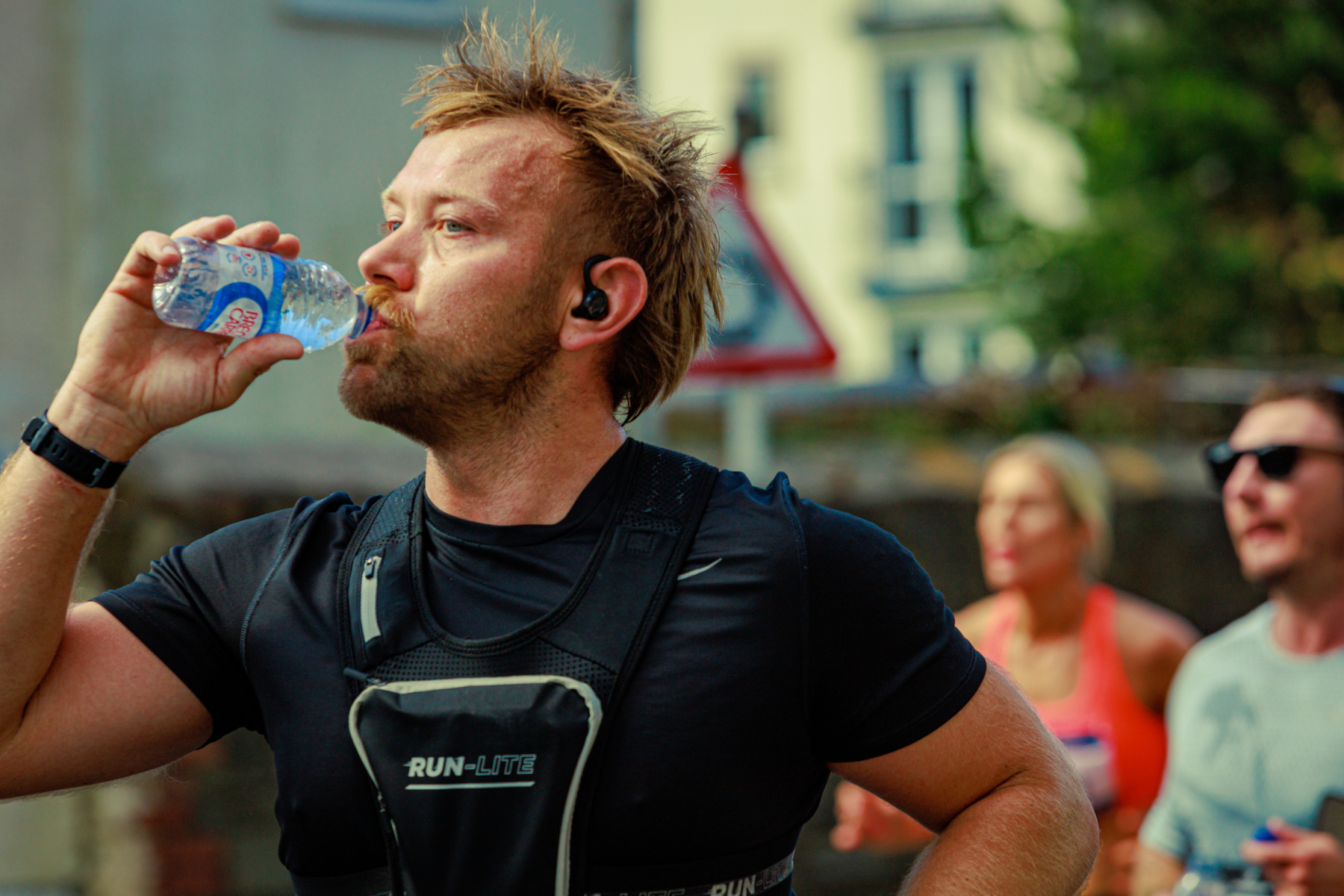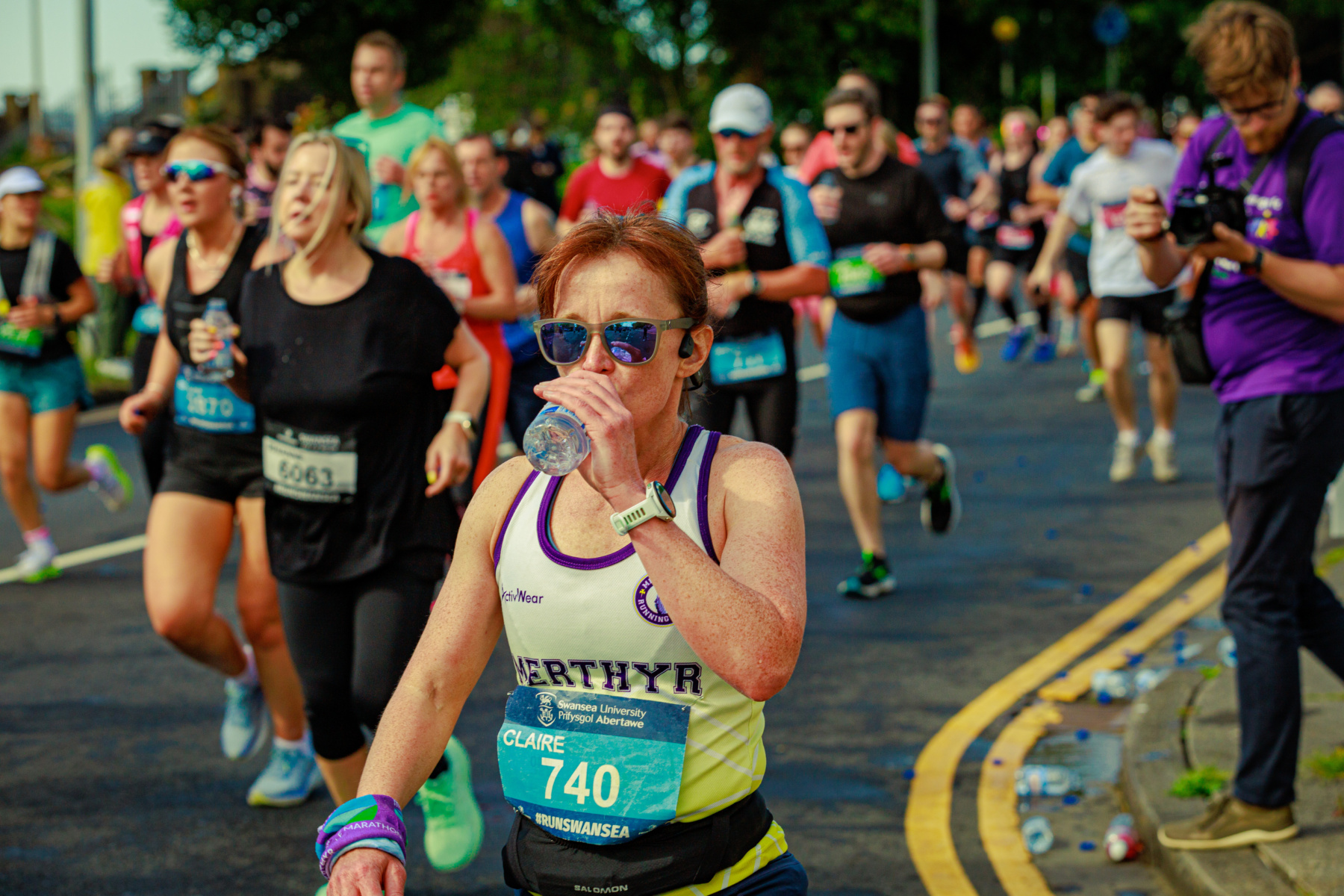Running in hot weather can be a challenge, but with the right strategies, you can maintain your performance, stay cool and safe. Here are some essential tips to help you beat the heat while running.
Hydrate properly

Proper hydration is crucial when running in hot conditions, especially if you’re planning an extended run! During your run, carrying a handheld water bottle, hydration belt, or using water stations can help you stay hydrated. When we run, especially in the heat, we lose a significant amount of electrolytes through sweat. To replenish these vital nutrients, make sure to finish your run with an electrolyte drink. Staying well-hydrated is crucial to avoid heat stroke, exhaustion, and cramps, which are the last things you want during your half marathon.
Choosing the correct clothing

Wearing the right clothing can make a significant difference in managing the heat. Choose light-coloured, loose-fitting clothes to reflect sunlight and allow air circulation. Opt for technical fabrics that wick sweat away from your body, keeping you dry and cool. Additionally, protecting your face and eyes from the sun with a hat and UV-blocking sunglasses is a smart choice.
Protect your skin
Protecting your skin from the sun is another important consideration. Apply a broad-spectrum sunscreen with at least SPF 30 about 30 minutes before your run, and reapply as needed, especially if you sweat heavily. Don’t forget to protect your lips with a balm that includes SPF to prevent sunburn.
Timing is everything!
Timing your runs to avoid the peak heat of the day can help you stay cooler. Early morning or late evening runs are ideal as temperatures are usually lower. Always check the weather forecast and avoid running during extreme heat warnings or high humidity levels, which can increase the risk of heat-related illnesses.
Choosing shaded routes can also help mitigate the effects of the sun. Plan your runs to include shaded areas such as parks, trails, or tree-lined streets to reduce direct sun exposure. Whenever possible, avoid running on asphalt surfaces, such as roads, which can radiate heat and make you feel hotter. Instead, choose grass or dirt paths.
Listen to your body
Listening to your body is crucial when running in hot weather. Pay attention to signs of heat illness, such as dizziness, headache, nausea, confusion, and excessive sweating. If you experience any of these symptoms, stop running immediately and seek a cool place. Gradually increasing your exposure to hot weather over 1-2 weeks can help your body acclimate.
Your body will signal when it’s struggling, so it’s important to recognize these danger signs and know how to prevent them. Be mindful of cramps caused by electrolyte imbalance or dehydration. If you feel your muscles cramping, stop, stretch, and hydrate to prevent the condition from worsening. Familiarise yourself with the locations of water fountains, restrooms, and places where you can find shade or assistance if needed.
Adjust your pace

Adjusting your pace is necessary when running in hot weather. Accept that you may need to run slower than usual and listen to your body to avoid overheating. Incorporating walking intervals can help regulate your body temperature and give you breaks from continuous running.
As the peak of summer heat approaches, it’s crucial to prepare for training in these conditions well in advance. Your body needs time to adapt to the higher temperatures, ensuring a more enjoyable experience. Remember, appropriate clothing, proper hydration, and allowing time for acclimatisation are essential!



